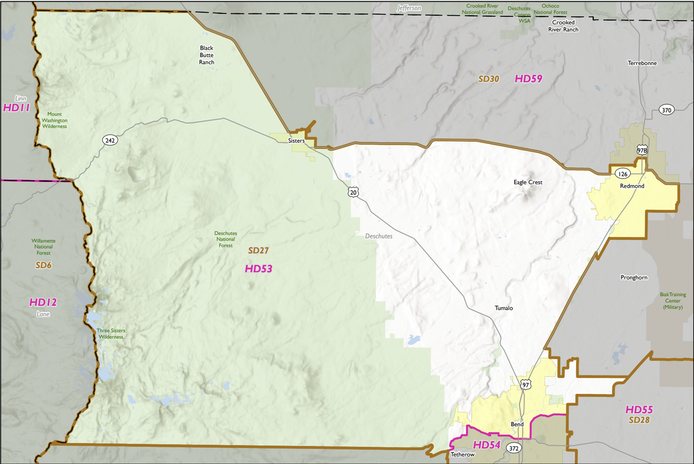|
Leadership Lessons We Must Learn From COVID Responses
Preface: I wrote this article originally in May 2020. Nearly two years now from the start of, what I call, the COVID era, my observations have proven accurate. I’ve added updated comments as of December 2021 in italics. If you’re a leader, you face regular challenges. It goes with the territory. Problems arise. Timeframes are short. Resources seem limited. The stakes are high. The fallout from failure looms large. You feel the urgency to act. You fear what might happen if you don’t act. The people you lead are clamoring for a decision. Ignorant opinions abound. Seems everyone has a vested interest, ulterior motive and a slick argument. The crowd all seems to be stampeding in one direction. Sound familiar? Chances are you’re in that situation right now as a consequence of the decisions made by many state governors and some city mayors to lock down America, close businesses and restrict Constitutional freedoms in an ill-considered response to the corona virus. Elected officials were in a tough spot back in March of 2020. No argument, it was a challenging moment in time. However, the flawed decisions they made have crippled America. But this could have been predicted. They fell victim to TINA. Beware - TINA Can Get You, Too. Who, or what, is TINA, you ask? Well, TINA is an acronym that stands for: “There Is No Alternative.” TINA strikes in moments of challenge. You’re stuck in the middle of a problem and desperate to get out. Fear rears its ugly head. Your stomach is in knots. Your pulse is racing. Someone suggests a solution. It sounds good. You don’t have a better idea at the moment. The pressure is on. Leaders aren’t supposed to panic, but, truth be told, you panic. You speak those fateful words that will come back to haunt you and those you lead: “We’ve just gotta do this...There Is No Alternative.” We watched this happen with our elected officials throughout the pandemic. Let’s give them the benefit of the doubt. Let’s presume there was no conspiracy, politics, personal aspiration, research-funding considerations or ill-intent. Let’s presume they are simply good people, trying to do good work. But, if that’s the case, I contend they panicked, and TINA got them. When faced with the threat of the corona virus, they rapidly made the fateful decision that there was simply no alternative but to lock down America and handcuff business. That decision will have (has had) devastating and crippling consequences. Consequences that should have and easily could have been anticipated and avoided. But TINA got us. We’re all susceptible to falling victim to TINA. It could happen to you. There’s a good chance TINA is after you right now in the fallout we face from lockdown policies and mandates. Before we look at how to guard yourself against a TINA attack, let’s look at what happens after TINA strikes. These things are so predictable, we can call them laws. The Law of False Dichotomy. A dichotomy is a polarizing contrast we construct between two ideas, approaches or values. The false dichotomy asserts there are only two mutually exclusive and opposing alternatives, and we can only choose one. This leads to the flawed conclusion that There Is No Alternative. Often the choices presented are emotionally charged, values-driven and passionately argued, such as those presented to us in the COVID crisis: Life vs. Death. Health vs. Money. Safety vs. The Economy. Selfishness or Caring. The scarcity mindset (or un-seen agendas) behind a false juxtaposition limits our ability to seek broader, more global solutions that could provide approaches to address all considerations, producing unity and collaboration, instead of division. The Law of Commitment. Once a TINA driven decision is made, there’s an emotional commitment made. We become invested in the chosen course of action. The language of commitment is familiar: “There’s no turning back. We just gotta do what we gotta do. After all, a leader has to stick with her decisions. Quitters never win. Besides, what will people think?” The Law of Commitment often keeps us from seeing our mistakes and recognizing the adverse consequences as a result. If we do see our decision is bad, we often won’t admit it. We pridefully die on a hill we should’ve abandoned long before. We’ve seen this happen over and over as politicians and the media double and triple down on terrible and untenable positions in order to save face, and because they are trapped in the “no alternative” conundrum. The Law of Consistency. Closely related to the Law of Commitment is the Law of Consistency, which requires us to act in accordance with the case we’ve declared, because of the immense pressure we feel to act in integrity with our declarations, even when our decisions and declarations are wrong. Note that integrity in this case does not mean right, righteous, noble, moral or good. It means making our words and actions line up…regardless of whether the words or actions are correct or appropriate. CYA - The Law of Justification. The more apparent it becomes our decision was wrong, or that the negative outcomes of the decision are too great, the more tendency there is for us to justify our character, position and decision. There’s a scramble to Cover Your Ass-umptions (CYA). Again, we’ve seen this play out repeatedly in the press, in government and with individuals (regardless of political position). The Law of Unintended Consequences. TINA driven decisions usually have unintended consequences. Sometimes they are good, sometimes bad, but because we failed to engage in a rigorous decision making process, we end up surprised by the consequences. But most of them could have been anticipated, avoided or designed around. The results of lockdown in response to COVID-19 are: massive fear, staggering unemployment rates, economic depression, countless bankruptcies, mental illness, addiction, heartbreaking abuse, suicide, anxiety, divisiveness and a welfare mindset. All these terrible outcomes could have easily been predicted with just a little thought. Instead, the most flawed public policy decisions in American history were mandated. TINA got us. There is Always an Alternative. As leaders, we can’t allow ourselves to get TINA-fied. The ramifications of flawed decision making are simply too damaging for those we lead. So, how do we avoid this pitfall? Here are a few suggestions. First of all, whenever you hear the words: “There is No Alternative.” or “We have no choice,” huge red flags should go up. There is always an alternative. There are always options. Part of a leader’s job is to look for options, to seek clarity and to cast proper vision. An ancient proverb says: “Where there is no revelation, people cast off restraint; blessed is the one who heeds wisdom’s instruction.” Succumbing to panic is an example of casting off restraint. Let’s seek wisdom before taking rash actions. Beware the Dichotomy Trap. Step back from the right vs. wrong, either/or, false choice arguments and look for a larger solution that encompasses all concerns. Slow Down. My cabinetmaker father used to say, “If you won’t take enough time to do it right, you’ll waste a whole lot more time cleaning up your messes.” Closely related was his instruction to always: “Measure twice...cut once.” Rushing critical decisions leads to tragic mistakes. Deliberate. One pronunciation of deliberate means “steady and measured.” Another means to seek wise council and to discuss problems from a variety of perspectives. The pressure to succumb to TINA causes us to forget that: “To a hammer, everything looks like a nail.” Likewise, to an epidemiologist, everything looks like an epidemic. Deliberating on diverse viewpoints in a steady, measured way produces the creative options that TINA blocks. Ask Better Questions. The quality of an answer is always dependent on the quality of the question. Here’s an example. Question: “How much is government willing to spend to defeat the corona virus?” Answer: “$6.2 Trillion.” Question: “What’s the best way to use that $6.2 Trillion?” Answer: Most of us could think up many options superior to wasting all those tax dollars in a futile attempt to clean up the devastating mess caused by lockdowns and mandates. Proceed Pragmatically. Pragmatic leaders deal in conversations of cause and effect, actions and likely reactions. They evaluate each potential course of action in light of its possible consequences. The pragmatist is interested in taking actions that produce optimum outcomes. Pragmatists know TINA is a lie. Instead of TINA, embrace the truth of TIAA. TIAA: There Is Always An Alternative. Let’s find the best one. In our nation and state, we remain locked down more by TINA at this point than by government officials and media. We need to break the cycle. There Is Always An Alternative.
0 Comments
I’m a business guy, not a politician. As an executive coach to Christian CEOs, one of the issues we address is the integration of faith and business. For many, this is a novel concept, as they’ve been taught not to mix business and faith. I disagree. In fact, a key concept in the Bible is that our lives are to be integrated, not separated. One of the oldest words in the Hebrew text is “Avodah,” which, in one word, means Work, Worship and Service. I wrote a bestselling book about this concept of living an integrated life, called The AVADA Principle. Check it out on Amazon.
Now, as I launch a political campaign to run for State Representative, I’m hearing a similar message from smart political people. They are advising me to avoid talking about faith…to not mix faith and politics, as it will “turn voters off.” I don’t believe so. I value and appreciate people who have well-grounded beliefs, regardless of whether they are the same as mine, and I’ve found well-intentioned people extend the same courtesy to me. In any event, we are designed to live an integrated life of Work, Worship and Service, whether we are engaged in raising kids, education, law enforcement, medicine, media, business, or politics. Therefore, I intend to integrate my faith into my work in the political sphere…and be authentic and transparent about that. I’ve also been cautioned not to use Biblical references in a political context. Again, I disagree. The Bible is the greatest book of wisdom ever written. Our US and State Constitution, Bill of Rights and Constitutional Amendments flow out of Biblical wisdom. Most of what passes for secular wisdom is derived or adapted from Biblical wisdom. Most people who object to Biblical references simply have not studied the Bible and experienced its wisdom firsthand. I understand some people will object to the integration of faith and politics, just like some people do not like it when I express my faith in the business domain. Here’s the thing. I care what people think about me in business. I want them to like me. I want them to do business with me. I also care what you think about me in politics, as I run for State Representative. I want you to like me. I want you to vote for me. However, I care more about God’s perspective on my Work, Worship and Service. In the Book of Colossians, the Bible says it this way: “Whatever you do, work at it with all your heart, as working for the Lord, not for human masters, since you know that you will receive an inheritance from the Lord as a reward. It is the Lord you are serving.” So, here are some of my thoughts about what it means to integrate faith and politics.
Regardless of your faith perspectives, I trust you’ll at least conclude that the approach of honoring God, seeking wisdom and engaging in rigorous discernment is a good thing for one seeking public office and that it will serve you well. I hope you like me. I hope you vote for me. Mostly though, I seek to run a righteous campaign and to serve righteously if elected. That’s faith in politics. |
Author
Michael Sipe Archives
February 2022
Categories
|
Where is House District 53?
You can vote for Michael if you live in the north part of Bend, the south part of Redmond, Tumalo, and Sisters.
Click here to see if your address is in House District 53: OREGON DISTRICT MAP
Paid for by Michael Sipe for State Representative (21733)



 RSS Feed
RSS Feed

